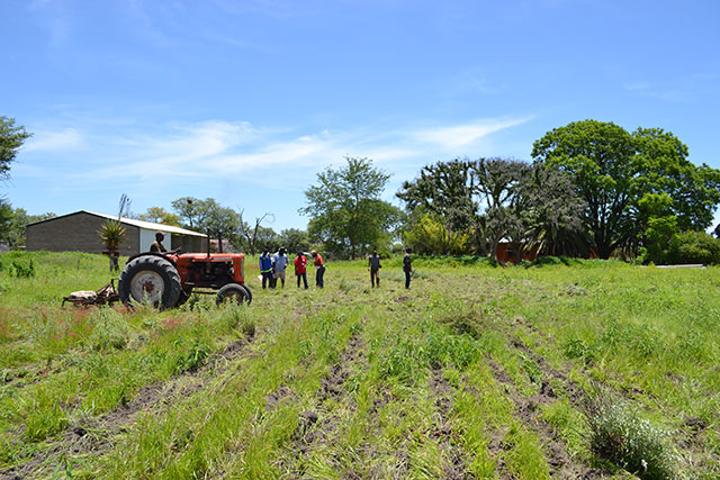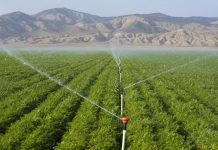Africa-Press – Namibia. FARM Krumhuk, situated about 25km south of Windhoek, is best known as one of a few communities successfully practising organic agriculture in Namibia.
Arriving at the 8 000ha farm for the first time, one is struck by the flat terrain between mountain ranges and fairly fertile soil, and would expect to see large crop fields, probably under irrigation.
However, to the contrary, the area is home to about 85 individuals from different local and foreign language groups, using biodynamic agriculture techniques.
This creates rich, healthy soil and preserves the environment.
The farm is a member of the Namibian Organic Association, which is in partnership with the Namibia Nature Foundation and the Knowledge Hub for Organic Agriculture in Southern Africa, and promotes sustainable agriculture.
Farm manager Clemens Voigts says the farm specialises in cattle farming, with about 300 Nguni cattle, including about 15 cows that produce milk for the farm’s dairy.
The farm also features pig production, horticulture, and food production.
Krumhuk has a large flock of free-range chickens which also helps rid cows of ticks and other parasites.
Voigts says the farm functions as an organism of which the various parts play different but complementary roles in the farm’s production and value addition chain.
“We strongly believe in the importance of education, and run a farm kindergarten, a primary school, and joint projects with local universities.
“In agriculture, the process of specialistion is problematic in that it depletes the natural fertility of the soil over a long period, and the continued use of chemicals to boost fertility endangers the environment, including water sources,” he says.
Voigts says organic farming promotes fertility and disease management through crop rotation, and the use of mulch in the hot climate reduces evaporation and helps retain more carbon in the soil.
He says there is a direct connection between people’s health and how the food they eat is produced.
“New research shows that organic crops such as cereals, fruit and vegetables have significantly higher concentrations of antioxidants compared to non-organic food,” he says.
Voigts says organic farming reduces pollution and greenhouse gas emissions by restricting the use of artificial chemical fertilisers and pesticides.
Dirk Bockmuhl, the manager of the four greenhouses at the farm, says the farmers at Krumhuk are out to promote sustainable farming techniques to make Namibia’s dry land arable, and to nurture an ecosystem of soil, plants and animals on the farm.
“We do not use chemical fertilisers, but different types of compost from vegetation and from manure, as well as bio-charcoal,” he says, adding that most of the pumpkins, beans, carrots, peppers, potatoes, turmeric and other produce are sold at the green market in Windhoek, and is not enough to meet the demand.
Additional activities offered at farm Krumhuk are game drives during which guests can see oryx, zebra, springbok, warthog and other wildlife.
There are also nature trails which offer beautiful views of the farm.
Trophy hunting is offered from February to November, with the proceeds helping to maintain a natural balance of wildlife, and helping to feed the entire farming community.
All the meat is processed at the farm’s own butchery and is sold at the market.
For More News And Analysis About Namibia Follow Africa-Press






